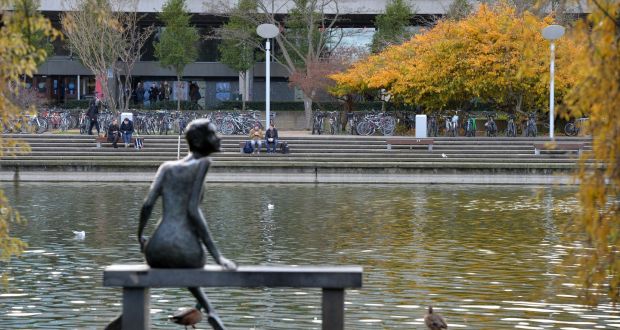
[dropcap]A[/dropcap]ccording to French philosopher and journalist Albert Camus, “to be happy, we must not be too concerned with others.” Isn’t that however, one of the fundamentals of being human? That we care? It often seems as though society has taken a newly egotistical and selfish stance against humanity – Me, Mé Féin and I.
People no longer want to stop and know – they’re in rush, they’re too busy with their own lives. They’re in a world of their own. Has humanity become purely self-driven or have we managed to retain an inherent kindness?
At the beginning of October Rebecca jetted off on a city break. Destination: Prague, followed by Berlin. Being a nervous flyer travelling to Berlin via train trumped the anxiety of an additional flight.
“We decided to get a four-and-a-half hour train from Prague to Berlin to cut out the nerves.”
Booking a direct train ticket was supposed to eliminate any potential dread with travelling, according to Rebecca.
On arrival into Germany an alarm bell began to wail, and an inauspicious armed contingent of Czech police boarded; the train had come to a standstill at Dresden – a two hour train distance from Berlin.
Apprehension set in for Rebecca, her thoughts mimicking the resonant alarm.
Hours later and clueless to what was going on Rebecca endured a theatrical encounter with a German conductor, and unable to understand anything that was being shouted at her, terrified what to do she guessed from the hostile gestures they should disembark.
Gathering her luggage she followed the other passengers onto the platform, their own reflections mirrored on the train.
Standing amidst a group of clueless student travelers in the pitch black, gale force winds blowing and rain pelting down, helplessness engulfed the inexperienced traveler. Rebecca and a dozen other English speakers found themselves stranded in the wrong German city with no plan and no language. Even if they were capable of communicating, there appeared to be no one willing to stop and help them.
‘This is where I started to panic… and cry.’ Rebecca says.
Noticing the 13 distressed youths an obliging English woman stopped to help them. She spoke German.
‘Wrangling’ the deserted group together, she ventured to the small information desk in the hope of providing a solution. The woman spent an hour translating back and forth, relaying information to the frantic bunch and finally organising taxis to Berlin at no cost.
Rebecca was overwhelmed with panic and had no idea what to do. She believes without this woman’s genuine concern, for people she didn’t even know, that Rebecca would still be in Dresden now.
‘I never got to thank the woman, but she deserves more than a thank you. She rescued 13 stranded, unilingual English speakers, in the middle of Germany, just because she wanted to.’
Sometimes we tend to lose ourselves in the rat race that is daily life. Pause the selfie.
Stop the mindless newsfeed scrolling. Lift the head and engage with what’s going on around you.
Why don’t we try a bit of selflessness?
Méabh Riordan



